Reading Improvement Normal Phonics Worksheets for Ages 5-6
6 filtered results
-
From - To
Enhance your child's reading skills with our Reading Improvement Normal Phonics Worksheets for Ages 5-6. Specifically designed for young learners, these engaging worksheets focus on foundational phonics concepts essential for reading success. Each worksheet offers fun and interactive activities that develop phonemic awareness, letter recognition, and blending sounds. Perfect for preschoolers and kindergarteners, these resources provide the practice and repetition needed to build confidence and fluency in early reading. Parents and educators will find these printables ideal for supporting kids' reading journeys at home or in the classroom. Jumpstart your child's literacy with our expertly-crafted phonics worksheets!
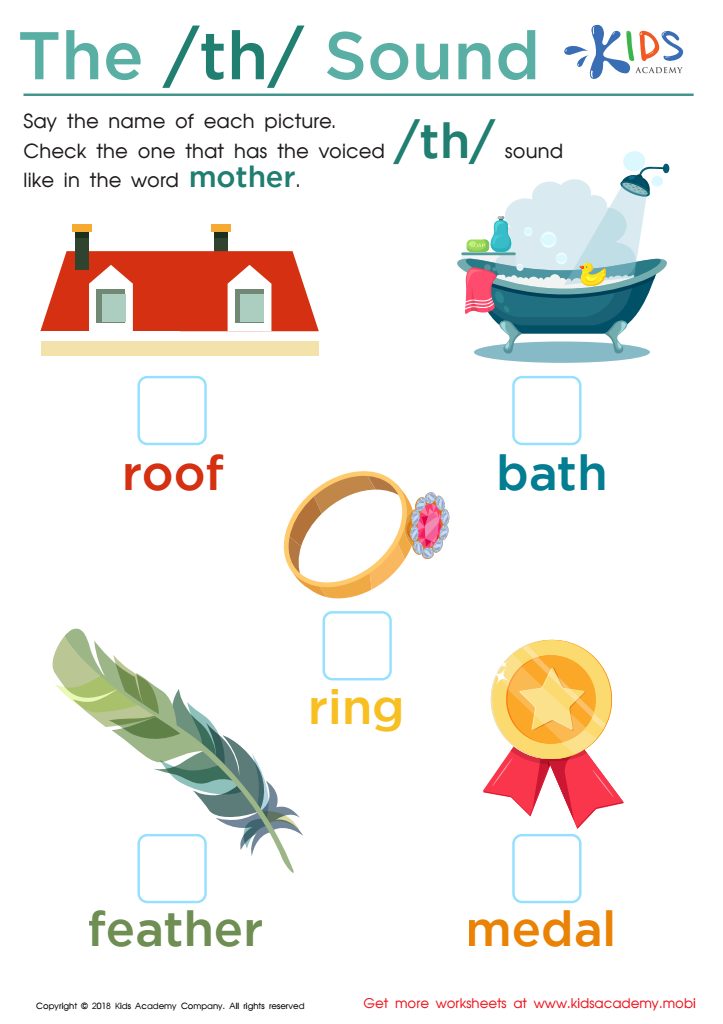

The /th/ Sound Worksheet
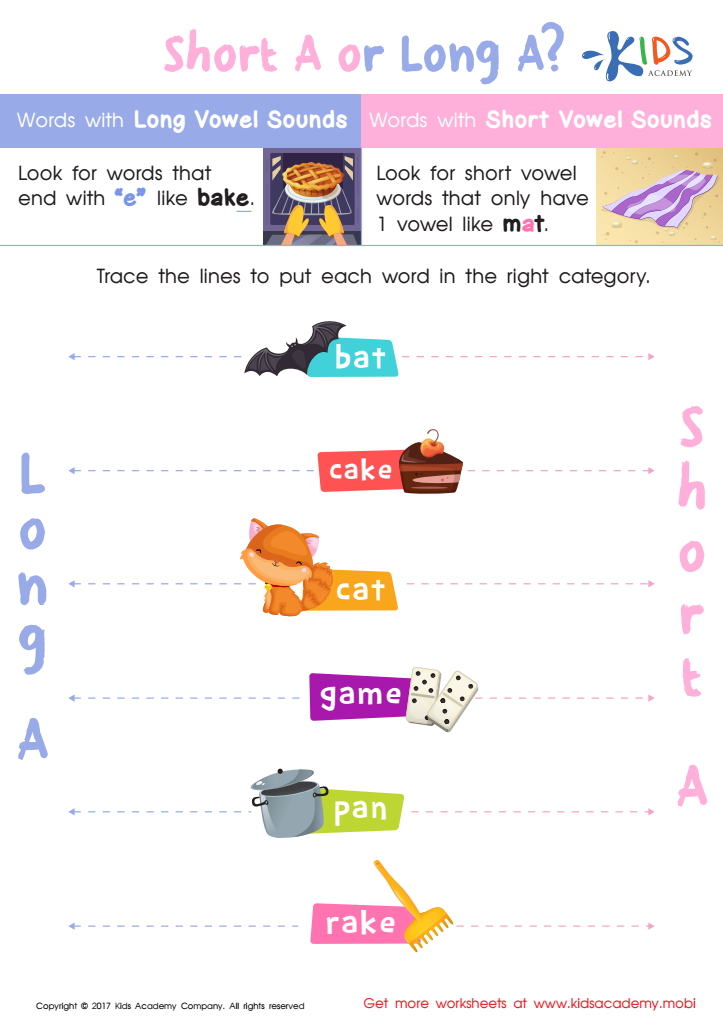

Short /a/ or Long /a/? Worksheet
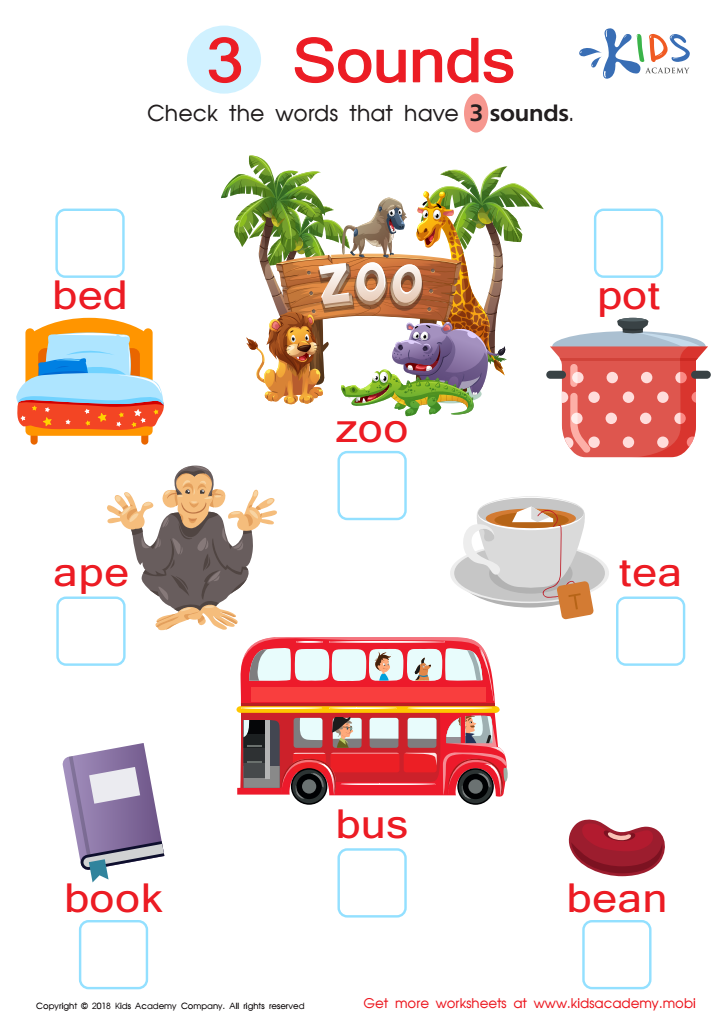

3 Sounds Worksheet
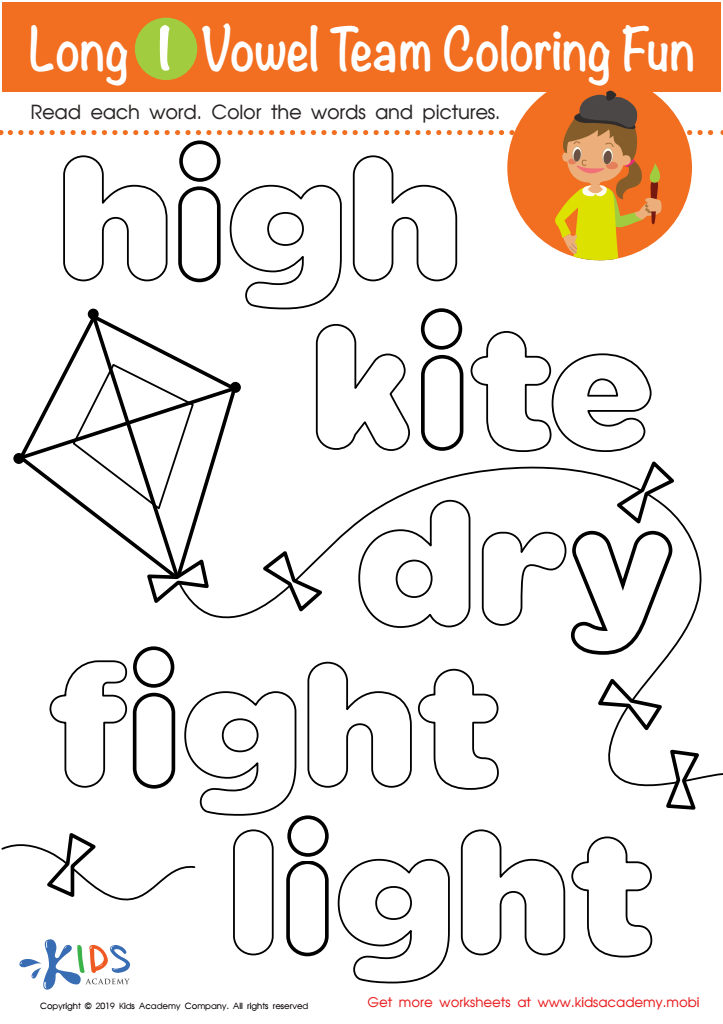

Long I Vowel Team Coloring Worksheet
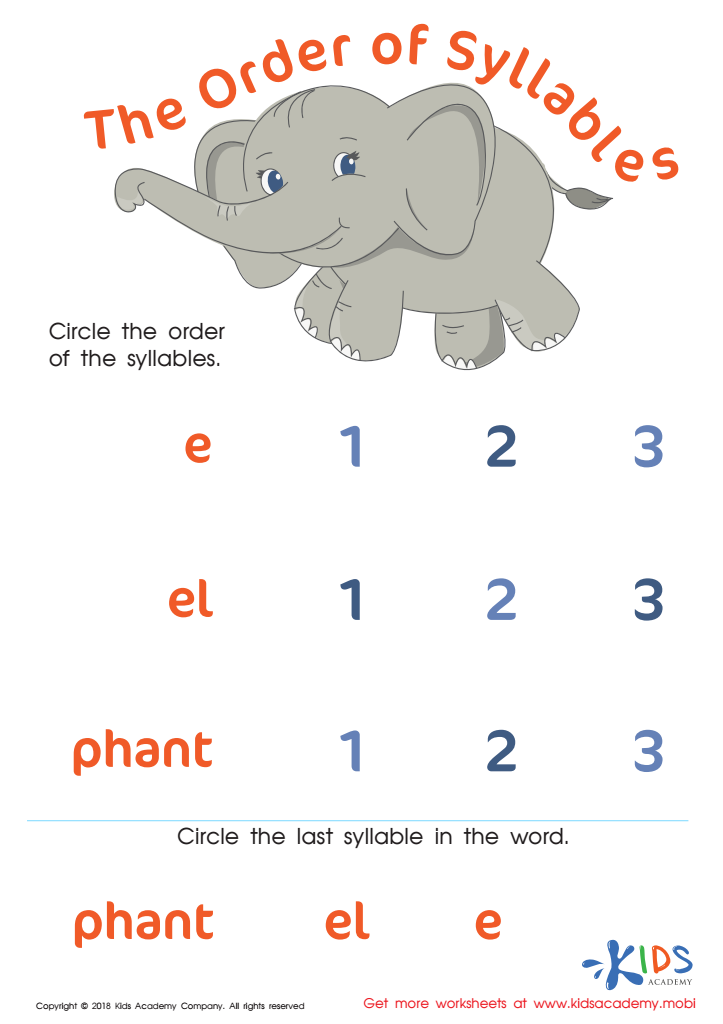

The Order of Syllables Worksheet
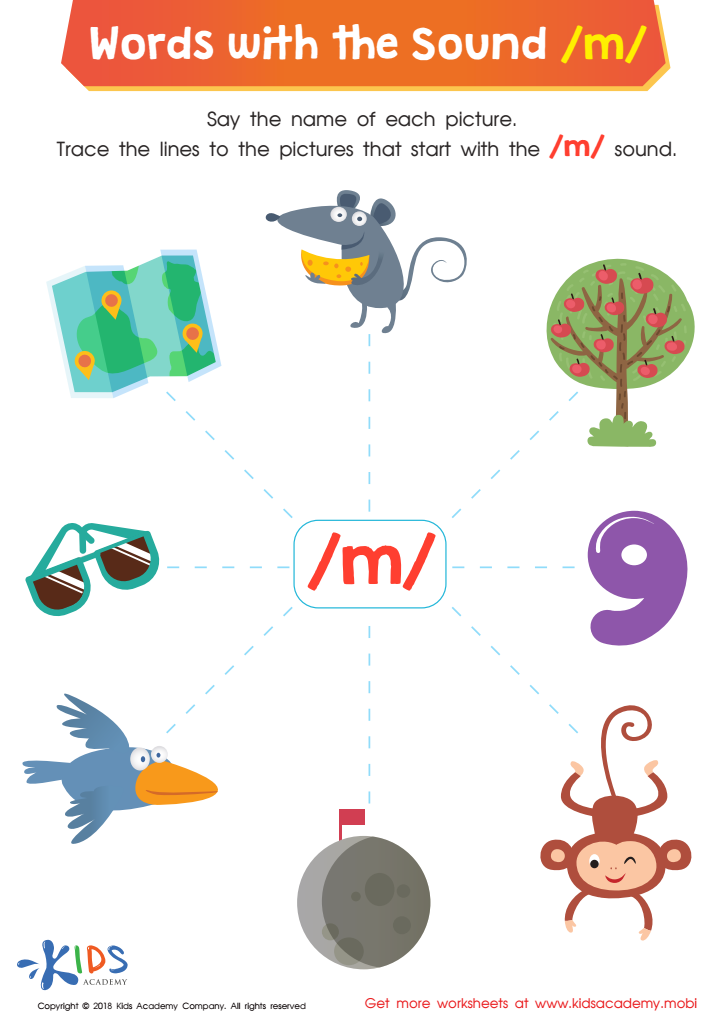

Words with Sound M Reading Worksheet
Reading Improvement Normal Phonics for ages 5-6 is essential because it lays the foundation for literacy, which is critical for a child’s academic success and lifelong learning. Phonics teaches children the relationship between sounds and their corresponding letters or groups of letters, helping them decode unfamiliar words independently. This essential skill not only supports reading fluency but also improves spelling and writing. When children master phonics at an early age, they become more confident readers, which in turn fosters a love for reading and learning.
Phonics instruction in early childhood enhances cognitive development, expanding children’s abilities in areas such as concentration, memory, and analytical thinking. Moreover, early reading skills are strongly correlated with better performance in other academic subjects like mathematics and science, as language comprehension underpins all learning.
For parents and teachers, focusing on phonics at this critical developmental stage can help identify and address potential reading difficulties early on, making intervention more effective. Early success in reading also supports positive self-esteem and a positive attitude toward school. By investing in reading improvement through phonics, parents and teachers are equipping children with the tools they need for educational success and long-term intellectual growth.

 Assign to My Students
Assign to My Students





















